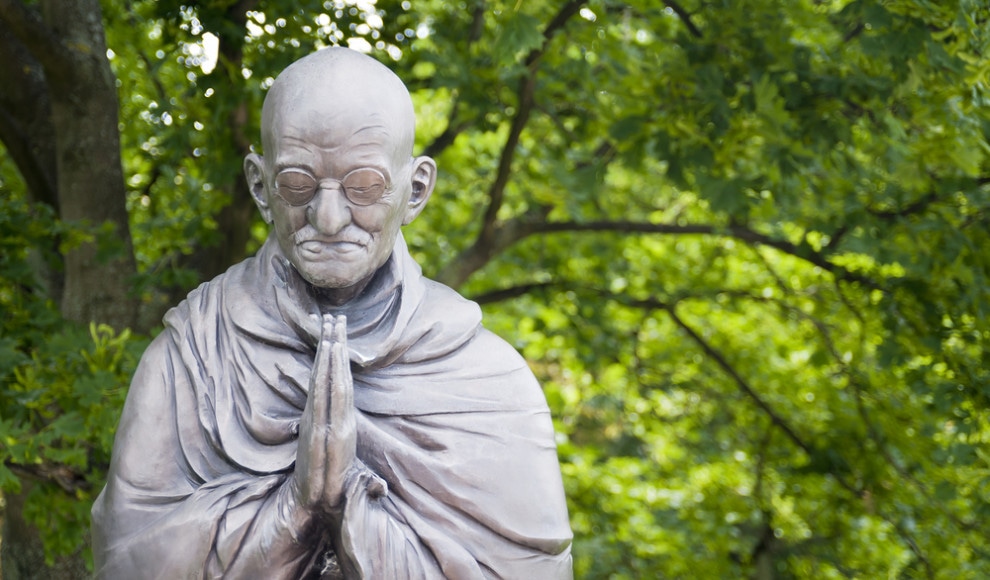
To be humble is to be modest in one’s view of oneself. Humble people lack self-importance, feeling so secure in their own goodness that it is no longer an issue. While they take their recovery seriously, they do not take themselves seriously. We are not grandiose, nor do we cast ourselves into inferiority. Instead, we are “rightsized,”–neither too big nor too small. We are reduced to our proper size, but not degraded. We are thus elevated in status, but not inflated. We are realistic about ourselves. We recognize not only our strengths and accomplishments, but also our weaknesses and failings.
Addicts have a hard time with humility because of their shame. They say an addict is an egomaniac with an inferiority complex. To become humble we must come to accept and value ourselves, even with our addictions. Although recovery from addiction does require a certain healthy humiliation, to become humble is to ultimately become free from humiliation. When our self-worth is no longer an issue, we can let go of our egotistical self-preoccupation and achieve humility. As C.S. Lewis once said, “humility is not thinking less of yourself, it is thinking of yourself less.”
The opposite of humility is pride. While humble people may take pride in something well done, they are not proud, meaning that they consider themselves above others, or take pride in the gifts they did not earn, such as their talents. Proud people put their will above everyone else’s. They consider themselves more important than others. The world serves them, rather than they serving the world. Recovery works for those who believe in God and those who don’t believe in God alike, but not for those who believe they ARE God. This is why they say that while there is no one “too dumb” for recovery, there are many who are “too smart.” This is pride. When we let go of our pride, we feel equal to everyone else. Humble people consider everyone special, including themselves, but no one is more special than anyone else. They realize that we are all unique, just like everyone else. Humility gives us permission to be ordinary. This is a great relief. Humility sets us free.
Humility is a central goal of recovery because, if we are not humble, we will relapse. Some say that we cannot save our face and our “ass” at the same time. If we are not humble, we will be humbled. Our egotism cuts us off from the support of others and invites aggression. This is not conducive to recovery. Having a swollen head only makes us a bigger target. Our alienation then leaves an emptiness into which our addictions rush.
Humble people value others as much as they do themselves. Humility is about valuing others equally. When we value others, we are open to listen and learn from them, knowing that we don’t have all the answers. Humble people are comfortable with being wrong. They are open-minded. They don’t have to always be right. They are less concerned about who is right as they are with what is right. They are teachable. They are secure in being fallible. With this security comes the ability to be educated and influenced by others.
In humility, it is about “we” and not “me.” We serve others for their benefit at the same time as our own. Other people matter as much as we do. All lives matter. We genuinely appreciate and value what others have to say and what others do.
With the humble recognition of our limitations and imperfections, humble people also recognize the potential to do better and for the world to be a better place. Humble people are not self-satisfied or stagnant. They work to improve themselves and the world around them.
Humble people don’t talk about their accomplishments. They let their accomplishments speak for themselves. They don’t draw attention to themselves. Not only do they not need to, but they do not want to because their agenda is the group, not self-aggrandizement. When praised, they point out with gratitude all those who helped them along the way. Rather than elevating themselves, they recognize others.
In humility, no job is beneath us. We pitch in, cleaning up the bathroom if needed, even if we are the boss. We don’t treat other people differently because of their position or social status.
We develop humility through the process of combined self-inquiry and self-acceptance, along with seeing and accepting our place in the order of things. We acceptingly see ourselves for exactly who we are, with all our character virtues and vulnerabilities. We accept our imperfections and limitations, knowing that we will be wrong and make mistakes every day of our lives. Because we accept, forgive, and value ourselves, we do not need to pump ourselves up into something greater than we are. Because we are OK, we can be less preoccupied with ourselves and attend to what Life asks of us. While we take care of ourselves, we also forget ourselves, because we see that it is really not just about us. We humbly step down from our throne and join in as equals.
